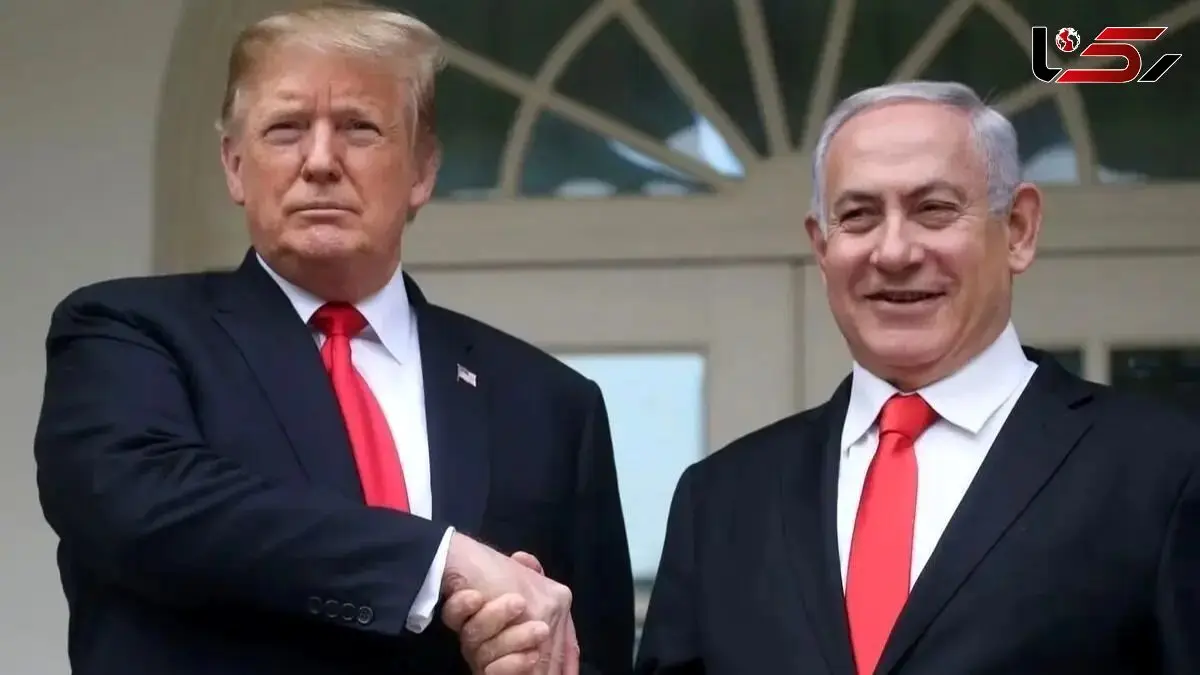The Secret Behind Netanyahu’s Support for the UN Security Council Resolution: A Message of Friendship to Trump?
Rokna Political Desk: The office of Benjamin Netanyahu welcomed the UN Security Council resolution calling for the establishment of an international force in Gaza based on Donald Trump’s peace plan, describing the measure as a step toward normalizing relations with Arab countries and strengthening the Abraham Accords.

On Tuesday, the office of Prime Minister Benjamin Netanyahu wrote on his account on X (formerly Twitter) that it welcomed the UN resolution to establish an international force in Gaza based on the peace plan of U.S. President Donald Trump, adding that the measure would lead to the expansion of the Abraham Accords among countries.
According to IRNA, Netanyahu’s office emphasized that the plan would help advance peace in the region, normalize relations, and build a lasting alliance with Arab states under Trump’s leadership.
The statement also called for the complete disarmament of Hamas and the demilitarization of Gaza, describing these as the prerequisites for forming the international force in the enclave.
However, Channel 14 criticized Netanyahu, writing that it appears the prime minister is unaware of the dangerous consequences of this plan and Israel’s retreat from its previous position, as Israel had opposed the draft until recently.
The channel added that according to the resolution’s text, if Palestinian officials implement reforms within the structure of the Palestinian Authority, this would lead to the establishment of a Palestinian state.
This comes as Netanyahu’s coalition strongly criticized the draft—revised at the request of Arab countries to support the establishment of a Palestinian state—and demanded that Trump adjust his position on the matter. They claimed the Security Council vote was conducted with Netanyahu’s knowledge and approval, and that he circumvented the coalition by doing so.
Meanwhile, Israel’s Channel 12 reported that Netanyahu had not accepted the UN Security Council resolution on the international force in Gaza for several reasons, including the presence of a clause in the resolution addressing the future establishment of a Palestinian state.
Nevertheless, political analysts interpreted Netanyahu’s positive reaction to the resolution differently.
They argued that Netanyahu’s statement conceals an obvious truth, stating that beyond trying to appease Trump and avoid provoking his anger, Netanyahu sought to present the Security Council resolution as a significant strategic and historical achievement for the Likud Party and to strengthen his support base for the upcoming elections.
According to the analysts, Netanyahu aims to highlight the clauses that align with the interests of the Israeli regime.
According to IRNA, the UN Security Council on Monday night local time approved the U.S.-proposed resolution based on the so-called Trump peace plan regarding the future of Gaza.
The U.S.-proposed resolution passed with 13 votes in favor and two abstentions. The resolution contains a clause outlining a potential future trajectory toward the establishment of a Palestinian state.
Under the resolution, a Peace Council and Stabilization Force in Gaza, as outlined in the “U.S. Comprehensive Plan to End the Gaza Conflict,” will be authorized to operate.
According to the resolution, member states may participate in the “Peace Council,” referred to as the transitional authority responsible for overseeing Gaza’s reconstruction and economic revitalization.
The resolution also emphasizes forming an international stabilization force in Gaza, tasked with disarming the enclave and dismantling military infrastructure.
Meanwhile, Hamas issued a statement rejecting the resolution and described it as a form of international guardianship over Gaza.
Hamas said the UN resolution is an attempt to create a framework aimed at achieving goals that the Israeli regime has failed to accomplish through two years of war in Gaza.
Hamas emphasized that the resolution seeks to separate Gaza from the unified geography of Palestine and create new realities contrary to the Palestinian national principles and legitimate rights, effectively depriving Palestinians of their right to self-determination and the establishment of an independent state with Jerusalem as its capital.
The statement added that resistance against occupation, by all possible means, is a legitimate right guaranteed by international laws and conventions, stressing that the weapons of the resistance are inseparably linked to the continuation of occupation. Any discussion on this matter must remain a national and internal issue, addressed within the framework of a political process aimed at ending occupation, establishing a state, and realizing the right to self-determination.
Send Comments